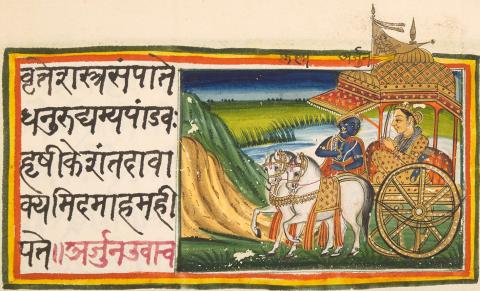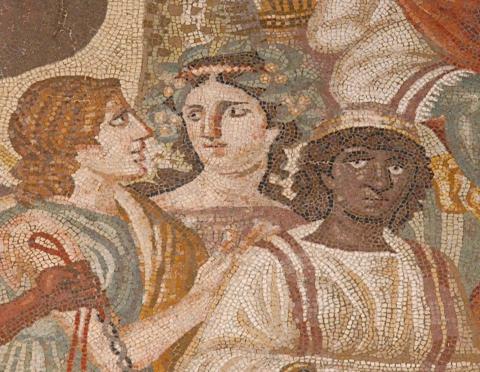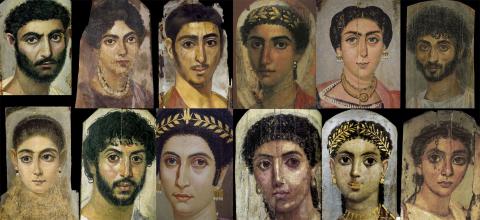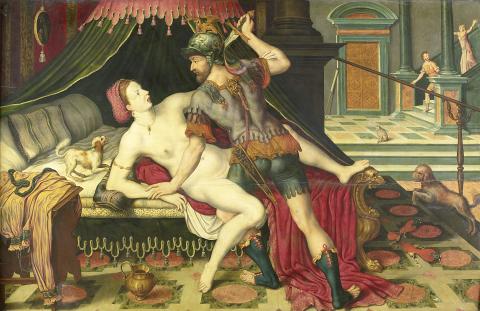SCS Blog Author Page
Posts by Arum Park

|
Blog: Inclusive and Culturally Responsive Teaching in Classics
Like many educators, I have found myself in an endless loop lately of thinking and rethinking my teaching principles and practices — a loop caused by the unprecedented teaching conditions the pandemic has brought upon us. Though I consider myself a thoughtful instructor, I admit that I have never thought so extensively, carefully, and critically about the purposes and desired outcomes of my teaching as I have in the months between March 2020 and now. Each week of each semester involves calibrating and recalibrating my courses, as I hope to meet the needs of my students and help them balance their lives within the classroom and without. I have become more attuned to the extramural realities that bear on my students’ learning, and as someone who works at a Hispanic-serving Institution, a desire for inclusivity increasingly informs the way I teach. My own institution just recently offered its first workshop on Read more … |

|
Blog: Tracing Tragedy: Classical Reception in Modernist Literature
Some months ago, a piece by Leah Mitchell and Eli Rubies on Classics and reception studies in the 21st century reiterated the importance of studying the reception of classical antiquity. It was a reminder that reception of classical material itself predates the scholarly field devoted to it. Its provocations overlapped with the suggestions of scholars such as Read more … |

|
Blog: What Do We Mean When We Say “Diversity”? Addressing Different Kinds of Inequity
In the past year, the Society for Classical Studies website has published a number of pieces catalyzed by the blatant racism on display at the most recent annual meeting. Professor Joy Connolly wrote a piece called “Working Toward a Just and Inclusive Future for Classics,” which then generated a response by an anonymous graduate student group, which in turn led to further comment by the SCS, Professor Connolly, and the newly formed SCS Graduate Student Committee. These various pieces pointed to ways Classics could progress and thrive for generations to come. What became lost in this Read more … |

|
Blog: Diversifying Classics II: The University of Michigan’s Bridge MA
Last year the Classical Studies Department at the University of Michigan announced the launch of its Bridge MA, a fully funded program designed to prepare scholars from diverse backgrounds for entry into one of Michigan’s Ph.D. programs in Classical Studies or related fields. There are few programs like it, particularly at public universities. One of its architects, Professor Sara Ahbel-Rappe, recently received a competitive award for her diversity efforts. I connected with her along with Dr. Young Richard Kim, the Onassis Foundation’s new Read more … |

|
Blog: Diversifying Classics: A New Initiative at Princeton
Princeton University’s Department of Classics has launched a new pre-doctoral fellowship for promising young Classicists who would contribute to the diversity of the University. Premised on a recognition that access to Classics is not equitable, the fellowship provides both preparation for and admission to Princeton’s Ph.D. program. I reached out to Professors Michael Flower and Dan-el Padilla Peralta to learn more about the concerns and conversations that gave birth to this fellowship. Below is our exchange, lightly edited for clarity. Park: This fellowship is, as far as I know, unique. From what I can gather, it essentially offers financial support for post-baccalaureate study along with Read more … |

|
Blog: Teaching Classics in the Age of #MeToo
Content Warning: The following post discusses classical narratives about sexual assault. Please note that the thoughts and opinions of SCS blog contributors are their own. Classics graduate student Sara L. Hales (University of Iowa) and Assistant Professor of Classics Arum Park (University of Arizona) explore how we read, discuss, and teach classical rape narratives in the midst of the #metoo movement. Arum: Sara and I started writing on this topic independently and were brought together by our mutual friend Sarah Bond, who noted the common thread in our essays and encouraged us to collaborate. We found ourselves among those in the (fortunate? unfortunate?) position of reading classical Read more … |
